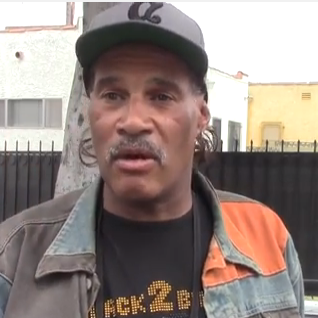Los Angeles Bans Homeless From Living In Their Cars

The city of Los Angeles is now banning the homeless from living in their cars. If caught, they will be cited, their vehicles will be towed, leaving them without shelter and still homeless.
According to the Department of Housing and Development, the homelessness population has increased between 2011 and 2013 by 67%. The population has risen to 57,737 people due to the economic downturn and it has forced more people out of their homes and into their cars.
The California Coastal Commission and Los Angeles Municipal Code state “No person shall use a vehicle parked or standing upon any parking lot owned by the City of Los Angeles.” That means the homeless could not only face living on the street if they are caught, they could also face misdemeanor charges.
Some people view living in their cars as a temporary thing. Unfortunately, the only cities that constructively address this type of homelessness are San Diego and Santa Barbara.
These cities have programs that help people transition and recover from job loss. Hannah Porsell, Program Manager for Dreams of Change, San Diego said, “We are helping a new type of homeless, whether it be disabled veterans, recently laid-off professionals with advance degrees, or current employees who cannot afford the standard costs of living, and our goal is to prevent them from reaching chronic homelessness and all possible resources.” But when a city prohibits these types of services, what kinds of options do they have?
Lawrence Williams has recently transitioned into living in his car in Inglewood, CA. He is a long time resident of the city, and has experienced the effects of Los Angeles-county parking and police enforcement firsthand.
He was living with his mother in a senior citizen housing complex in Los Angeles, but that all changed once his mother passed away. “I was in the living room watching tv and I heard a thump in the bathroom. It was my mother leaning on the side of the bathtub, and she was foaming at the mouth. That led me to call 9-1-1.” Williams listened to dispatcher who informed Williams to place his mother on her side; he recalls the woman taking heavy breaths that sounded like snores. He didn’t know these would be her last breaths of life. His mother died from a heart attack and complications of seizure on January 16th, this year.
After his mother’s death, he was given two weeks by the facility to vacate the property. In less than a month, he was fired from the job at which he had worked for over four years. He was a Receiver’s Assistant at Ralph's grocery store. Williams' former Ralph's supervisor refused to give his name but commented, “Williams was fired for a verbal altercation with staff.”
“When I lost my job, my car was the only thing I had left,” Williams says. He sleeps in a purple, 1998 Nissan Maxima. He has a comforter, a toothbrush, a few pair of clothes and shoes, and old security gear. He uses his money he receives from General Relief and bathes in nearby fast food bathrooms.
He received an inheritance from his mother but was broke in three months. “I was given money, when my mom died, but you have to pay for motels and outstanding fines--it’ll run out real quick.” Most of Williams’ money was spent on living and food, while another portion was spent on fines for expired tags, registration and child support. His fines were outstanding, not because he refused to pay them, but because he simply couldn’t.
Williams made less than nine dollars per hour when he was employed at Ralphs. “ I was bringing home $125 a week. Now, you tell me where I can make a basic living off of that in LA.”
He has four fines that have turned into warrants, and in order to pay them, he must turn himself in to the police. He has been a long-term resident of Inglewood and decided to park his car at the 2300 block of 78th Place in Inglewood, because that’s where he was born and raised. Before he made his decision, he let local residents know he means no harm, and his situation is temporary. Most residents weren’t as receptive.
One resident said, “I get home at midnight and just to see someone sitting in their car that I don’t know. I don’t know his intentions and I don’t know if they’re good or bad. Why does he have to be on our street?” Another resident said, “As long as he’s not bothering me. Put yourself in his shoes; he’s gonna move soon.” One neighbor said, “I don’t think he’s supposed to be out there.”
According to LAPD, aggressive enforcement is a result of neighborhood complaints. The Inglewood Municipal Code states,"it is unlawful for any person to stop, stand or park a vehicle upon private or public property.”
Since Williams’ car doesn’t start, he moves it himself throughout the week from one side of the street to the other, depending on the day of the week for street cleaning.
Williams plans to turn himself in and work towards finding a job and pursuing a security license.
Reach Staff Reporter Isaac Moody here, or follow him on Twitter.



